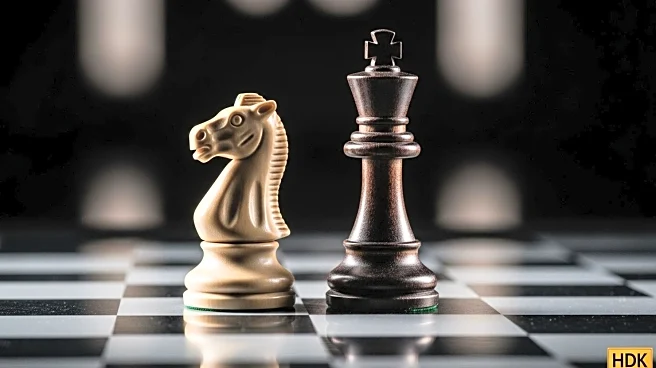What is the story about?
What's Happening?
Secretary of State Marco Rubio met with Russian Foreign Minister Sergei Lavrov at the United Nations General Assembly, following President Trump's recent comments suggesting Ukraine could reclaim its territory from Russia. The meeting, lasting approximately 50 minutes, did not yield immediate responses from Lavrov regarding Trump's shift in tone. Rubio reiterated Trump's call for an end to the violence and urged Moscow to take steps toward resolving the conflict. Trump's reversal, which labeled Russia a 'paper tiger,' has prompted reactions from both Russian officials and U.S. diplomats, with discussions focusing on the potential for increased support for Ukraine.
Why It's Important?
The meeting between Rubio and Lavrov is significant as it reflects ongoing diplomatic efforts to address the Russia-Ukraine conflict. Trump's shift in rhetoric may influence U.S. foreign policy, potentially leading to increased support for Ukraine and pressure on Russia. The dynamics of U.S.-Russia relations are crucial for global stability, and any changes in policy could impact international alliances and economic sanctions. The meeting underscores the importance of diplomatic channels in navigating complex geopolitical issues and the role of U.S. leadership in shaping global responses.
What's Next?
Future developments will depend on whether Trump's rhetorical shift results in tangible policy changes. The U.S. may consider implementing sanctions on Russian banks or increasing military support for Ukraine. Russia's response to Trump's comments, particularly the characterization of its military as a 'paper tiger,' will be pivotal in determining the conflict's trajectory. Diplomatic engagements, such as further meetings between U.S. and Russian officials, will be essential in shaping the outcome of the conflict and assessing the potential for negotiations.
Beyond the Headlines
Trump's shift on Ukraine highlights broader trends in U.S. foreign policy, characterized by strategic recalibrations and fluctuating positions. The implications extend beyond immediate geopolitical concerns, potentially affecting U.S. domestic politics and Trump's relationships with international allies. The rhetoric used by Trump at the U.N. also raises questions about the ethical dimensions of his leadership style and its impact on global diplomatic norms.















